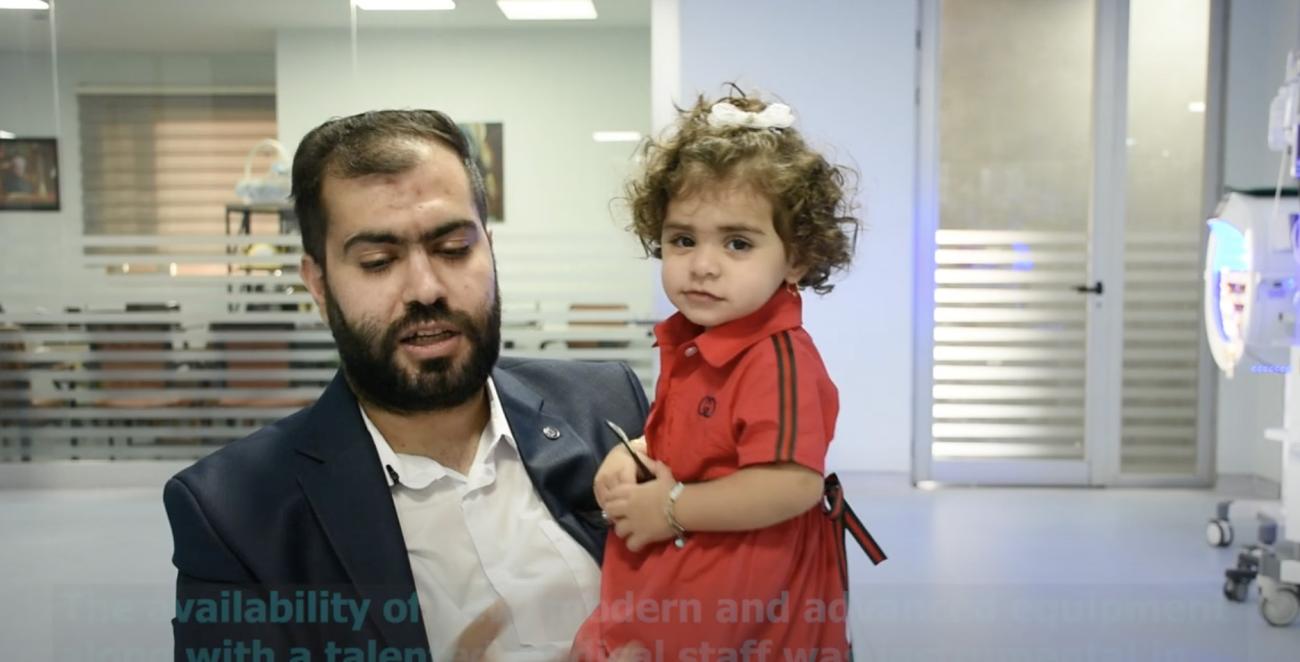WHO partnership helps to reduce maternal and infant mortality in Iraq

Written by Celia Thompson Dadson (UNAMI SCPIO) with contributions from Dr. Ajyal Mansour (WHO)
Translations by Rashwan Salih, Ihsan Barzanji and Nafea Azeez
Bundles of joy; beneficiaries’ stories
When Roses’ mother decided to celebrate her first birthday at the refurbished neonatal unit of Erbil Maternity Hospital, it was a gesture filled with profound significance. After a long and hopeful wait of over fifteen years to conceive, she faced disappointment on the day of delivery. Her precious bundle of joy arrived prematurely at 28 weeks, weighing only 800 grams, with a respiratory distress symptom, necessitating specialized care during those critical hours.
Rose now thrives with health and vitality, reflecting the journey of Bareen, one of the first beneficiaries of this state-of-the-art infant center. Born at just 26 weeks and weighing only 900 grams, she was meticulously monitored in the intensive care unit for 48 days before being moved to the Kangaroo Care room. Her dad, a physician at the same hospital told the story:
Dedicated Care: Transforming Lives Through Advanced Technology
Reducing neonatal mortality and deaths of children under five is a top priority in the Sustainable Development Goals. In Iraq, this accounts for over 50% of under-five fatalities. However, many premature births and complications can be prevented with high-quality, evidence-based interventions before, during, and immediately after pregnancy and childbirth.
Thanks to strategic partnerships between WHO Iraq and the Ministry of Health of the Kurdistan Region of Iraq (KR-I), and with funding from the Bureau of Population, Refugees, and Migration (PRM) of the U.S. State Department, the challenges the hospital faced in handling complex cases such as the lack of essential equipment like the Continuous Positive Airway Pressure (CPAP) ventilators, infant incubators, and infusion pumps are now part of history.
Dr. Lana Ahmed Dzayee, Head of the Neonatal and Premature Department at Erbil Maternity Teaching Hospital:
Revitalized Surgical Unit: Ensuring Safe Deliveries
Such impactful transformations and capacity-building among medical staff have slashed the neonatal mortality rate from 6.2% in 2021 to a staggering 1.1% in 2024.
In 2017, the Iraqi Ministry of Health reported that the top causes of maternal mortality were hemorrhage, pre-eclampsia/eclampsia, and uterine rupture—one of the challenges Negiz faced during her last pregnancy.
Dr. Shadan Sherwan Heyderi is the general director of the maternity hospital and one of the specialized surgeons who performed Negiz’s operation.
Strategic Partnerships: Building Healthier Futures
Prioritizing maternal and neonatal care is not only about saving lives but also fostering the growth of healthier generations to come.



